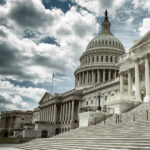Today, a group of five plaintiffs filed an action in the Court of International Trade (“CIT”) asking the court to enjoin and declare illegal the reciprocal tariffs imposed under Executive Order 14257 (April 2, 2025) and modified by Executive Order 14259 (April 8, 2025). The plaintiffs are an eclectic group of companies that import wine and spirits, ABS resins, electronic parts, sportfishing tackle, and women’s cycling apparel.
The Complaint alleges that the President exceeded his statutory authority because IEEPA does not grant the President the power to impose tariffs, trade deficits are not a “national emergency” or “an unusual and extraordinary threat,” as required by IEEPA, and the authority claimed by the President “raises a major question that requires Congress to speak clearly in granting such a broad and consequential power to upend the global economy,” meaning that no court should read the authority under IEEPA as broadly as the President’s actions require given the lack of explicit tariff authority in IEEPA. The plaintiffs further allege that if IEEPA were to be construed to contain a delegation of tariff authority to the President, the tariff action thereunder should be struck down under the non-delegation doctrine.
The lawsuit is the third of its kind to challenge the use of IEEPA to impose tariffs, but it is the first filed at the CIT and the first challenging the reciprocal tariffs which are now in effect on goods from most countries. We expect additional suits to be filed.

